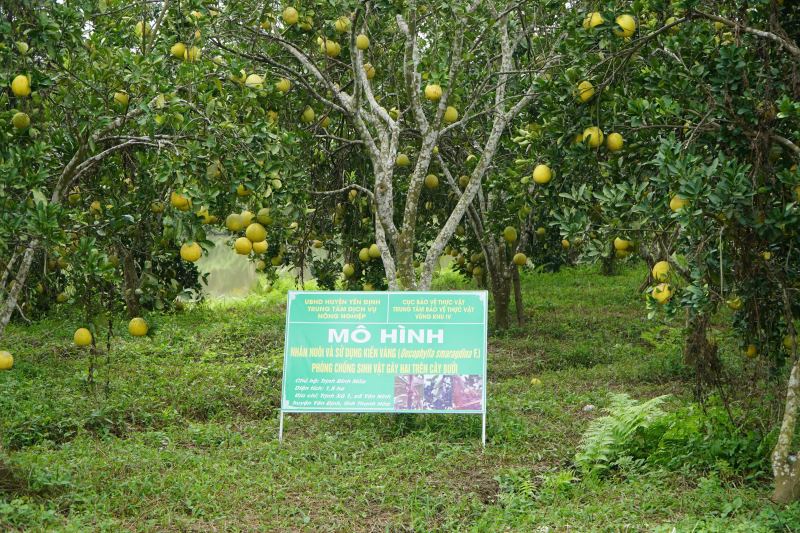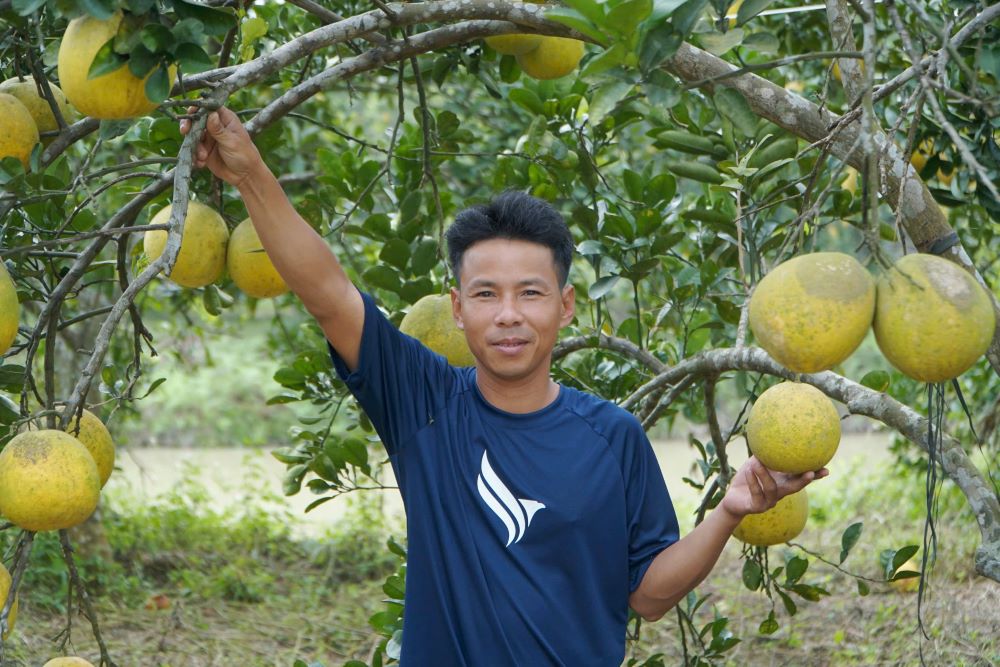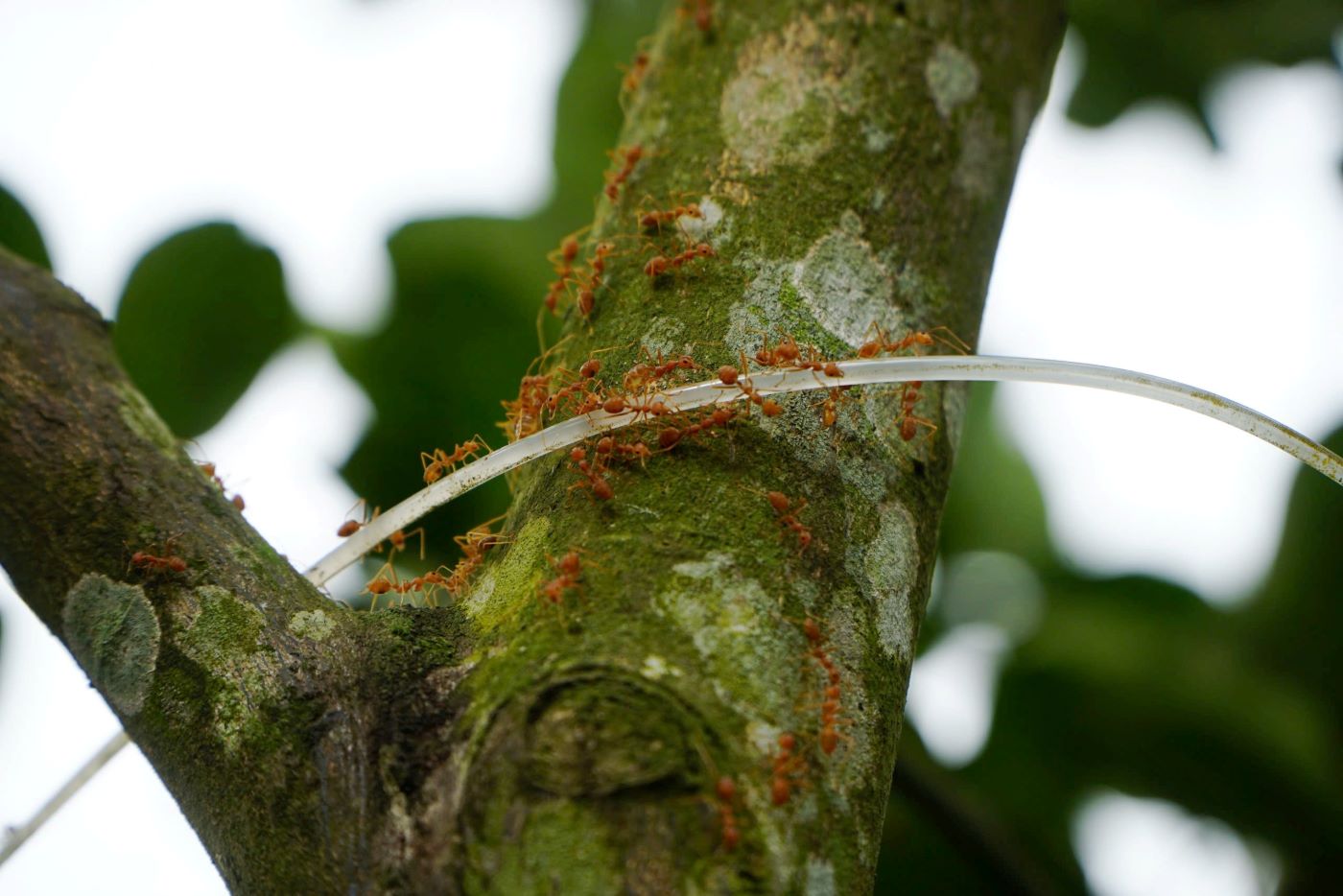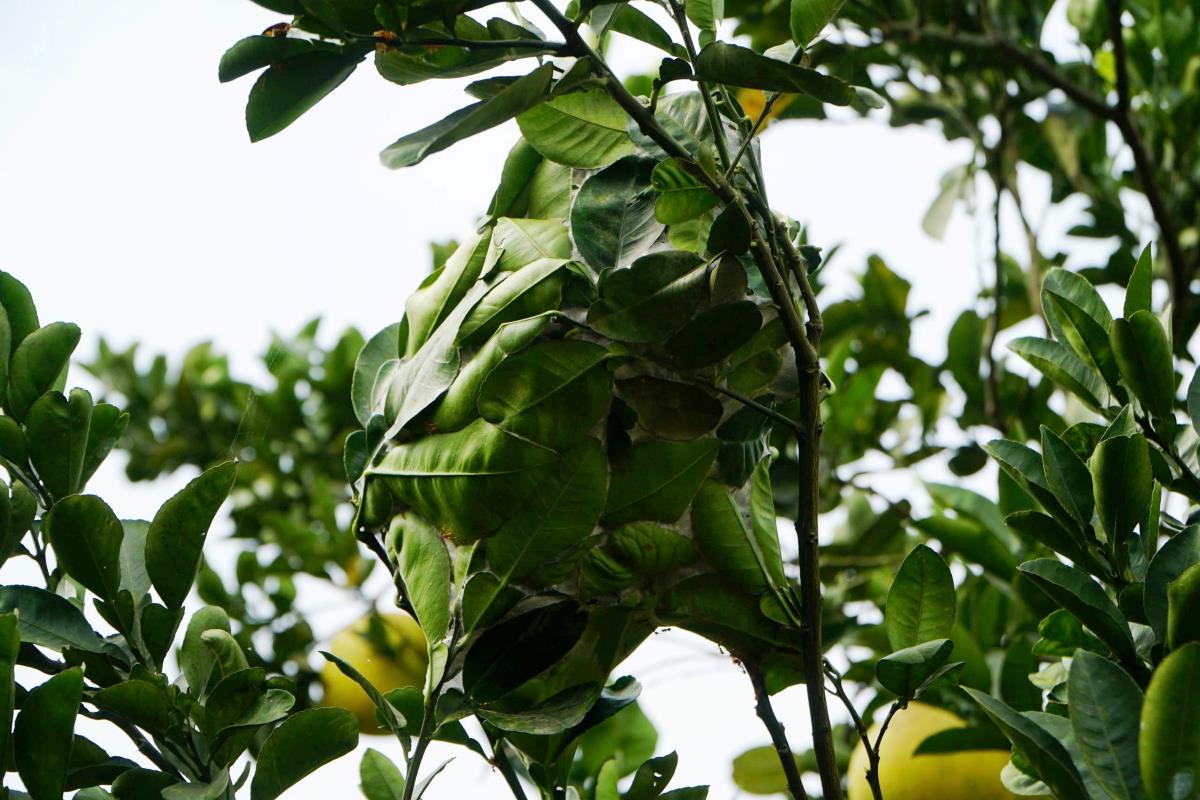Visiting the grapefruit garden of Trinh Dinh Mao's family (37 years old, in Trinh Xa 1 village, Yen Ninh commune, Yen Dinh district, Thanh Hoa province) these days, it is filled with a golden color and a gentle fragrance. Mao said that his family's Dien grapefruit garden is more than 1.5 hectares wide, with about 300 trees, planted nearly 20 years ago.

According to Mr. Mao, after many years of care and use of chemical fertilizers and pesticides, the quantity of pomelos that ripen and set during harvest time is not much, leading to low economic efficiency. More than a year ago, he was guided and supported by officers of the Plant Protection Center of Region IV (Plant Protection Department, Ministry of Agriculture and Rural Development) with technical support for raising weaver ants instead of pesticides.
“Since applying this technique, I have seen clear results, the grapefruit grows and develops more evenly, without pests or diseases. In addition, the grapefruit is cared for completely organically, ensuring cleanliness and a higher price,” Mr. Mao shared.

It is known that in order to have a large number of ants to protect the grapefruit garden, Mr. Mao initially used plastic bottles containing shrimp and chicken intestines to lure the ants to make nests. Only a short time later, the number of yellow ants flocked to the grapefruit garden was unimaginable. To facilitate the ants' movement, he stretched strings connecting the trees together.
According to Mr. Mao, since the arrival of the yellow ants to “protect” the grapefruit garden, the leaves no longer have pests, the flowers and fruits are less likely to be stung by bees, so the number of fruits has also increased significantly. Realizing that this technique is highly effective and saves on the cost of buying pesticides, he has continuously lured and expanded the ant model to many other gardens.

Sharing his experience in raising ants in the past, Mr. Mao said that the habit of yellow ants is carnivorous, if the ants are fed too much, they will hunt less. If not supplemented with enough food, the ants will easily leave. Therefore, it is necessary to regularly monitor the ant colony to make appropriate adjustments to ensure the stability of the colony.
"One taboo when raising yellow ants is not to use pesticides, because if you do, the ants will die or go away," said Mr. Mao.

According to Mr. Mao, in addition to protecting plants from pests, yellow ants also help detect plants that are lacking water. Specifically, yellow ants often drink water on the tree trunk. If you see a lot of ants crawling to the ground, it is a sign that the plant is lacking water and needs to be replenished immediately.
Thanks to the model of raising ants to protect the grapefruit garden, grapefruit yield has also increased. It is estimated that Mr. Mao's grapefruit garden will yield tons of fruit this year, with a revenue of more than 100 million VND.
A representative of the Department of Agriculture and Rural Development of Yen Dinh District (Thanh Hoa) said that currently, the district has about 300 hectares of oranges and grapefruits. The application of the method of raising weaver ants instead of pesticides has been implemented in a number of models, initially bringing high efficiency.
In the coming time, the locality will continue to replicate this model, aiming to increase crop productivity (especially oranges and grapefruits), create clean products, high prices and contribute to environmental protection.











